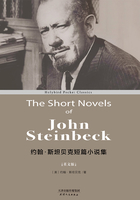就像聪明的富兰克林所言:“假如你喜欢喋喋不休,争强好胜,那么你也许偶尔会赢。可是这种胜利没有什么实际意义,因为你永远获得不了对方的好感。”
所以,好好地反省一下自己。理论上虚假的胜利和一个人发自内心的好感,你会选择哪一种呢?你不可能同时拥有。
因为一笔9000美元的重要账目,个人所得税顾问弗雷德里克·佩森与一名政府税务稽查员争论了将近一个小时。佩森声称,这9000美元是呆账,根本不可能收上来,所以不应该征收所得税。而那位顽固的稽查员说:“不可能,一定要征收。”
佩森在课堂上对学生们讲述道:“那位稽查员是一个骄傲、自大、顽固的人。解释根本没有作用。事实上,我们越是争吵,他就越顽固。所以,我就不再与他争吵,试着转变话题,表示理解他的工作。
“我说:‘与你处理的那些极其重要而困难的事相比,这件事情根本不值一提。我只是自学了税务,而且仅仅局限于书本,而你的税务知识全凭实践而来。说实话,我十分羡慕你的工作,它可以教会我很多东西。’”
“哦。”那位稽查员直起身跟我谈了很久。关于他的工作——他告诉了我许多工作中的技巧。他的语气变得缓和了许多,后来还谈起了自己的孩子。临走时,他告诉我,他会仔细考虑一下我的问题,并在几天内给我答复。
“三天后,我在办公室里接到了他的电话。他通知我,那笔所得税不征收了。”
人性中最常见的弱点在这位稽查员的身上得到了很好的验证。他想得到被重视的感觉。所以,当佩森先生与他争吵时,他固执地展示权威来找到被重视的感觉。然而,一旦重视感得到满足,争吵停止,便会展现出他宽容、温和的一面。
争吵是无用的,它往往让双方更坚定自己的立场。
refrain [ri:'frein] v. 制止;避免;节制;克制
Would you please refrain from smoking here?
请您别在这里吸烟好吗?
academic [鎘'demik] adj. 学院的;学术的;理论的
The question is purely academic.
这是一个纯学术性的问题。
consultant [kn'sltnt] n. 顾问;会诊医生;咨询者
They employed me as a consultant.
他们雇用我为顾问。
wrangle ['r鎙] v. 争论;争吵
Tell the boys of playing there not to wrangle.
告诉在那儿玩的男孩子们不要吵闹。
我把自己的生命浪费在争吵之中。
这种胜利没有什么实际意义,因为你永远获得不了对方的好感。
人性中最常见的弱点在这位稽查员的身上得到了很好的验证。
The more my prospect argued in favor of it.
in favor of:有利于;赞同;支持
An item of nine thousand dollars was at stake.
at stake:处于危险中;在紧要关头
40成为一个健谈者
An Easy Way to Become a Good Conversationalist
戴尔·卡耐基 / Dale Carnegie
Some time ago, I attended a bridge party. I don' t play bridge and there was a woman there who didn' t play bridge either. She had discovered that I had once been Lowell Thomas' manager before he went on the radio and that I had traveled in Europe a great deal while helping him prepare the illustrated travel talks he was then delivering. So she said:"Oh, Mr. Carnegie, I do want you to tell me about all the wonderful places you have visited and the sights you have seen."
As we sat down on the sofa, she remarked that she and her husband had recently returned from a trip to Africa.
"Africa!" I exclaimed. "How interesting! I' ve always wanted to see Africa, but I never got there except for a twenty-four-hour stay once in Algiers. Tell me, did you visit the big-game country? Yes? How fortunate. I envy you. Do tell me about Africa."
That kept her talking for forty-five minutes. She never again asked me where I had been or what I had seen. She didn't want to hear me talk about my travels. All she wanted was an interested listener, So she could expand her ego and tell about where she had been.
Was she unusual? No. Many people are like that.
For example, I met a distinguished botanist at a dinner party given by a New York book publisher. I had never talked with a botanist before, and I found him fascinating. I literally sat on the edge of my chair and listened while he spoke of exotic plants and experiments in developing new forms of plant life and indoor gardens (and even told me astonishing facts about the humble potato). I had a small indoor garden of my own—and he was good enough to tell me how to solve some of my problems.
As I said, we were at a dinner party. There must have been a dozen other guests,but I violated all the canons of courtesy, ignored everyone else, and talked for hours to the botanist.
Midnight came, I said good night to everyone and departed. The botanist then turned to our host and paid me several flattering compliments. I was"most stimulating." I was this and I was that, and he ended by saying I was a "most interesting conversationalist."
An interesting conversationalist? Why, I had said hardly anything at all. I couldn' t have said anything if I had wanted to without changing the subject, for I didn' t know any more about botany than I knew about the anatomy of a penguin. But I had done this: I had listened intently. I had listened because I was genuinely interested. And he felt it. Naturally that pleased him. That kind of listening is one of the highest compliments we can pay anyone.
So if you aspire to be a good conversationalist, be an attentive listener. To be interesting, be interested. Ask questions that other persons will enjoy answering. Encourage them to talk about themselves and their accomplishments.
Remember that the people you are talking to are a hundred times more interested in themselves and their wants and problems than they are in you and your problems. A boil on one' s neck interests one more than forty earthquakes in Africa. Think of that the next time you start a conversation. Be a good listener. Encourage others to talk about themselves.
前段时间,我去参加了一次桥牌聚会。可我不会打桥牌,刚好有一位女士也不会打,我们便一起聊天。当她得知我曾在汤姆森先生从事广播事业之前,为了帮助汤姆森准备一些有关旅行栏目的演讲内容而特意到欧洲各地去旅行时,便对我说:“啊!卡耐基先生,您能不能把您游览过的名胜古迹或美景讲给我听呢?”
我们刚坐到沙发上,她便告诉我,她和她的丈夫前不久刚从非洲旅行回来。
我说:“非洲!那可是一个有趣的地方!我一直梦想着能到那片土地去看看,可我只是在阿尔及尔待过24小时,便再没有去过非洲其他地方。快给我讲讲吧,你真的去过那个伟大的国家吗?是吗? 多么幸运啊!我真是太羡慕你了!请告诉我一些有关非洲的情形吧!”
随后,她绘声绘色地讲了整整45分钟。她根本就没再问我到过欧洲哪些地方和在异地的所见所闻。事实上,她根本不想听我讲旅行的事情,她唯一需要的不过是一个专注的倾听者,好让她借此机会讲述自己曾经到过的地方。
在日常生活中,这位女士不同寻常吗?不,很多人都是这样的。
比如,在纽约一位出版商的晚宴上,我曾经遇到了一位声名显赫的植物学家。我以前从未与植物学家交谈过,只是觉得他有极强的个人魅力。我毕恭毕敬地坐在椅子上倾听,他便滔滔不绝地介绍大麻,改良植物新品种的实验,以及室内花园等(他还向我讲述了许多有关廉价马铃薯的惊人事实)。我家里也有一个小型的室内花园,他耐心而友好地替我解决了我所遇到的一些疑惑。
就像我所说的,我们是在宴会上,其他十几位客人也一定在场。然而,我忽略了所有礼节上的规矩,把那些客人全部放在一边,与这位植物学家谈了几个小时。
午夜时分,我向大家告辞后,便离开了。这位植物学家找到宴会主人,对我大加赞赏,他说我是“最富激励性的人”,我有多好多好。 最后,还说我是个“最有趣的健谈者”。
一个有趣的健谈者?为什么?我几乎没说什么话。如果我不选择改变话题的话,就算我想说,我也说不出什么来,因为我对植物学方面知识的了解少得可怜,就像对企鹅的解剖一样一窍不通。然而,我做了这些事:我专注地倾听对方讲话。而我这样做,是因为我真的对话题产生了兴趣。他也感觉到这一点,而这一点显然让他很开心。专注地倾听他人讲话,就是对他人最好的尊敬。
所以,如果你想成为一个健谈者,那么就要做一个善于倾听的人。如果你想使别人对你产生兴趣,你首先要对别人产生兴趣。提出一些他人喜欢回答的问题,激励他们谈自己,谈他们的成就。















